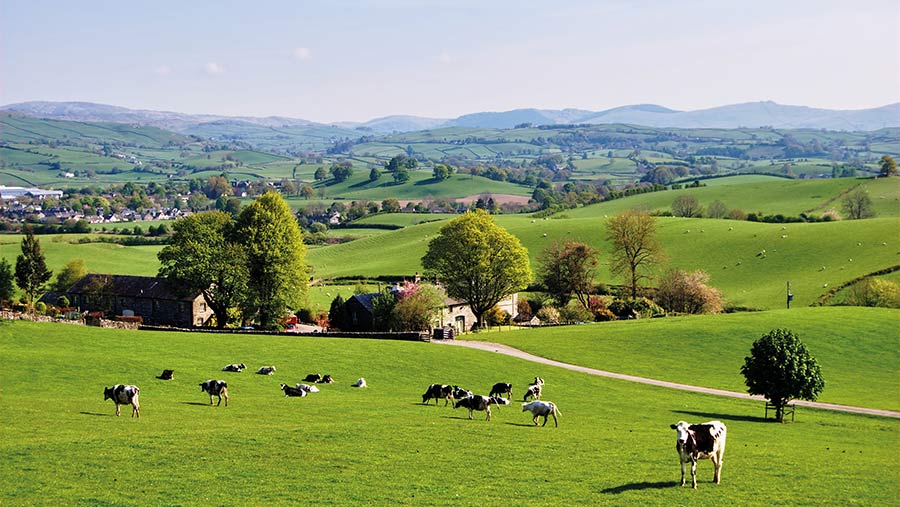Opinion: Focus on what you can control as BPS is phased out
 © Kevin Eaves/Adobe Stock
© Kevin Eaves/Adobe Stock Official farming policies are in plain sight, but widely overlooked by those who seek uncertainty or are easily distracted.
We know the direction of travel and are being given time and money to manage the journey.
But with policies only part of the picture, farmers should focus on what they can control within the business while facing changing markets, adapting to climate change, and using new technologies.
See also: Defra adds six new standards to SFI scheme for 2023
About the author

Jeremy Moody is secretary and adviser to the Central Association of Agricultural Valuers (CAAV).
Here he advises farmers to focus on what they can control and use the transition period to improve productivity.
Farming is to become a business with less or no direct subsidy.
England is already phasing out payments for occupying land, and Wales will remove them too, while Scotland will subject payments to strong climate change and biodiversity conditions.
This emphasises the need to improve UK farming’s productivity – not total production or intensification, but the business efficiency necessary for income and improved food production.
This has lagged competitor countries over the years of area payments. Withdrawing them will provide funds to support investment and innovation.
Environmental improvement sits alongside this, including climate, biodiversity, water and air quality.
This year, England will re-use a third of former Basic Payment Scheme (BPS) money to buy change, including creation of habitat, woodland and peatland.
The schemes offer options, but are not a salvation and should be considered on their merits. Created as “something for something policies”, they will involve costs, will suit many and be unattractive to others.
Some, such as those directed at soil health, can help farming. But looking to schemes and unshaped private markets as replacements for BPS risks being a displacement activity, when the focus should be on the business.
Farming’s income overwhelmingly comes from production. Of the UK’s £25bn or so of farming income, £22bn comes from production and £3bn from payments – much of that passed on into costs.
That £3bn will not be matched by carbon trading. A Green Alliance paper suggests that, even at £50/t (perhaps three times values presently seen), carbon would only meet half that, “assuming it is all measurable, verifiable and paid for”.
Moreover, if farming sells its carbon credits to others, it will have no easy answer when society and suppliers ask it to save carbon itself.
Defra plans for £500m of private environmental finance by 2027 and £1bn by 2030, buying change but not limited to agriculture and again, less than current support.
Biodiversity net gain, potentially offering larger values per hectare, might need 4,047ha/year.
Price-taking commodity farmers must control unit costs. With AHDB figures showing the bottom quartile losing money on winter wheat, efficiency and competence will be key.
That makes it important that proficient farmers have access to the land they need and which can provide them with a margin. Their rents might replace area payments for those unable to farm without them.
In produce markets, prices are not matching cost, commitment and risk for many high value sectors. Yet purchasers, under their own pressures, are likely to require climate and environmental standards to be met.
The stage should be set for a major re-appraisal, whether through markets or actions under Agriculture Act powers.
Others will find ways to be price-makers for produce, or continue to seek incomes beyond farming.
Discussion, advice, the perspective of an external view, a trusted adviser as safe challenger can all help farmers make better decisions.
The transition period, with its reducing payments, gives time for each to think, take advice, decide and act in finding personal answers to these challenges.
